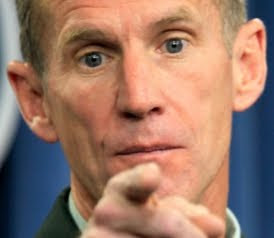South Sudan World Newest Nation
THE LAND: Sudan is currently the largest country in Africa but on Saturday will lose the Texas-sized south, which becomes its own nation. South Sudan shares a 1,300 mile- (2,100-kilometer-) border with northern Sudan. South Sudan also will border Kenya, Uganda, Ethiopia, Central African Republic and Congo.
___
THE PEOPLE: The south's population is disputed. A 2008-09 census found that it had 8.26 million, but the southern government argued that the south has between 11 million and 13 million. Of more than 200 ethnic groups, the majority practice traditional or indigenous faiths and Christians remain in the minority. The percentage of southern Muslims is much smaller, though immigrants from the north who practice Islam are well represented in the southern capital.
___
CHALLENGES: It is one of the least developed regions in the world, where an estimated 85 percent of the population is illiterate. The U.N. says a 15-year-old girl in Southern Sudan has a higher chance of dying in childbirth than finishing school. There was only a mile or two of pavement in its capital just a little over a year ago. Food prices have soared in recent months and unemployment is high: Many southerners are self-sustaining cattlekeepers or farmers, while others subsist off small sales of tea and other goods.
___
THE ECONOMY: Sudan is sub-Saharan Africa's third-largest oil producer, and the south should assume control of more than 75 percent of the daily oil production of 490,000 barrels. But negotiations between north and south over the future of the oil industry — worth billions per year — are mired in dispute.
Oil earnings have accounted for about 98 percent of the south's budget the past six years, and the government has said diversifying its economy is a priority. The southern government recently called for the U.S. to lift its sanctions on Sudan, which currently prohibit U.S. companies from investing in the country.
Reserves of copper, gold, and tin could prove to be an asset to the new country's economy but could spark further problems with the north. Vast tracts of arable land in the south are ripe for commercial agriculture, and watchdog groups have warned of the risk of "land-grabbing" by foreign investors due to the lack of regulation by the young government
http://www.msnbc.msn.com/id/43688782
___
THE PEOPLE: The south's population is disputed. A 2008-09 census found that it had 8.26 million, but the southern government argued that the south has between 11 million and 13 million. Of more than 200 ethnic groups, the majority practice traditional or indigenous faiths and Christians remain in the minority. The percentage of southern Muslims is much smaller, though immigrants from the north who practice Islam are well represented in the southern capital.
___
CHALLENGES: It is one of the least developed regions in the world, where an estimated 85 percent of the population is illiterate. The U.N. says a 15-year-old girl in Southern Sudan has a higher chance of dying in childbirth than finishing school. There was only a mile or two of pavement in its capital just a little over a year ago. Food prices have soared in recent months and unemployment is high: Many southerners are self-sustaining cattlekeepers or farmers, while others subsist off small sales of tea and other goods.
___
THE ECONOMY: Sudan is sub-Saharan Africa's third-largest oil producer, and the south should assume control of more than 75 percent of the daily oil production of 490,000 barrels. But negotiations between north and south over the future of the oil industry — worth billions per year — are mired in dispute.
Oil earnings have accounted for about 98 percent of the south's budget the past six years, and the government has said diversifying its economy is a priority. The southern government recently called for the U.S. to lift its sanctions on Sudan, which currently prohibit U.S. companies from investing in the country.
Reserves of copper, gold, and tin could prove to be an asset to the new country's economy but could spark further problems with the north. Vast tracts of arable land in the south are ripe for commercial agriculture, and watchdog groups have warned of the risk of "land-grabbing" by foreign investors due to the lack of regulation by the young government
http://www.msnbc.msn.com/id/43688782


Comments
Post a Comment